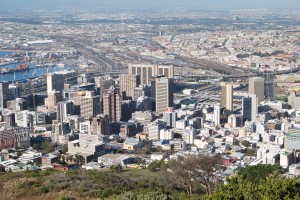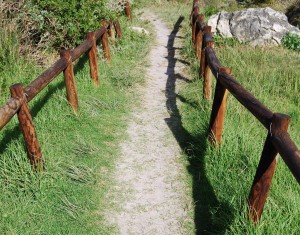CHAPTER < TEN – RENEGOTIATING HUMAN DESTINY
“Before man can transcend the present, before he can view nature in this new dimension, he must first change himself.” Conservationist and Biologist Dr George B. Schaller
 There is a phenomenon that humanity shares with the rest of the animal kingdom, from bees in a hive to matriarchal elephant herds roaming the African savannah. It is the phenomenon of population regulation as dictated by density-dependent and density-independent factors.
There is a phenomenon that humanity shares with the rest of the animal kingdom, from bees in a hive to matriarchal elephant herds roaming the African savannah. It is the phenomenon of population regulation as dictated by density-dependent and density-independent factors.
When in times of plenty, populations of insects and animals multiply by leaps and bounds their numbers reach a certain point beyond which they begin to push the outer limits of the carrying capacity of their environment. At this point the individuals within that population are forced to compete with increasing intensity for resources that begin to dwindle. Population density often causes the characteristics of these population members to change; with density-dependent effects ranging from hormonal changes to the way individuals behave, coming in to play. In this way aggression can become a density-dependent effect brought about by overpopulation and correspondingly inadequate resources.
One example that a density-dependent effect has on a community is the savagery displayed by a colony of rats that has outgrown its habitat. In the congestion of overcrowding the rats, which previously coexisted harmoniously, now turn on each other in a desperate attempt to ensure that their individual needs are met.
 Perhaps in a similar way the aggression in humans that builds under conditions of overcrowding until it eventually explodes into a situation of regional conflict or even global war, is also a density-dependent effect; a built-in survival mechanism designed by evolution as a safety valve to ensure the long-term continuation of the human race, as conflict decimates human numbers to levels the Earth can continue to support. And if density-dependent effects do not have the required result, then density-independent factors are able to regulate human numbers: factors such as extreme climate variability, water scarcity and geological catastrophes.
Perhaps in a similar way the aggression in humans that builds under conditions of overcrowding until it eventually explodes into a situation of regional conflict or even global war, is also a density-dependent effect; a built-in survival mechanism designed by evolution as a safety valve to ensure the long-term continuation of the human race, as conflict decimates human numbers to levels the Earth can continue to support. And if density-dependent effects do not have the required result, then density-independent factors are able to regulate human numbers: factors such as extreme climate variability, water scarcity and geological catastrophes.
So far we have been able to avoid the unrecoverable effects of both scenarios through strong procreative instincts, advanced technologies, relatively stable food supplies, improved hygiene and sanitation, better healthcare, improved education for greater numbers of people, watchdog regulating influences such as the work done by the United Nations and a fair degree of luck. Thus, though our stay on this Earth has been marked by geological upheavals such as earthquakes, avalanches and other natural disasters, as well as plague, famine, and conflict, which have at times significantly reduced our population, we have been able to recover and even advance from these bases of denuded numbers.
However, although in most countries around the world today people have reached a stage of sociological development whereby they have been able to tame most of their aggressive instincts, as well as achieve a remarkable level of mastery over their natural environment, there can be no doubt that we are still hostage to aspects of our human character. We are also at the mercy of the vagaries and dictates of planet Earth. And although we have undoubtedly made considerable gains over past decades we are still at risk, for the intelligence that is threatening our civilisation and bringing us to the point of planetary depletion: the intelligence to conceive and build nuclear weapons and achieve a level of technological advancement capable of wholesale stripping of the Earth’s resource base within decades, could ultimately be the agent of our destruction. Unless of course we are able to out-intellectualise our own intelligence!
 What I mean by this is that if, by changing as a species and transcending to another level of consciousness and understanding altogether, we are able to avert calamitous devastation either through the avoidance of global warfare or widespread ecological destruction, we will have succeeded in taking our intelligence to another, higher, plane. And if from this higher plane, calling upon a universal state of grace, we are able to develop the wisdom to recognise the wrong turns in the road we have made in the past, we should be able to creatively reroute our progression. If at the eleventh hour we can pull this off it will be a quantum leap for humankind, on a scale that has never been achieved before.
What I mean by this is that if, by changing as a species and transcending to another level of consciousness and understanding altogether, we are able to avert calamitous devastation either through the avoidance of global warfare or widespread ecological destruction, we will have succeeded in taking our intelligence to another, higher, plane. And if from this higher plane, calling upon a universal state of grace, we are able to develop the wisdom to recognise the wrong turns in the road we have made in the past, we should be able to creatively reroute our progression. If at the eleventh hour we can pull this off it will be a quantum leap for humankind, on a scale that has never been achieved before.
There can be no doubt that we are at an important crossroads and the decisions that we make now will have momentous significance for our own lives and those of future generations. Meeting the challenge will require the harnessing of different characteristics and strengths from the ones we have relied on previously. It will require a heightened awareness and a changed global mindset. It will require different priorities, values and ethics. It will require a shared vision and an unparalleled degree of co-operation, across national boundaries and between national leaders and among nations’ citizens. It will require different individual and group behaviours. And it will require clearer and more intense communication strategies.
But isn’t it just possible that alongside the scale of frightening devastation that could befall us if we fail, there could be emerging a previously unknown human capacity for wisdom and selflessness? And isn’t it also possible that in terms of the human transformation that is taking place around the globe, it could be the time right now for many of us to feel the call to action, heeding the challenges that lie before us? There are many indications I believe for this to be so.
Challenges of Change
Change. It is an image that conjures up a multitude of different emotions in different people. And whether the spectrum of feelings it arouses ranges from flutters of pleasant anticipation to episodes of anxiety or paroxysms of gut-wrenching fear, for most of us change is not something that we undertake lightly. Of course, there are those endemic risk-takers among us who relish every shade of change possible, actively seeking out its each and every nuance in their readiness to live life on the edge, readily turning their lives upside down at a moment’s notice. However, these intrepid people are in the minority I believe, for in my experience, it simply goes against the grain of human nature to want the status quo to be upturned. And for most of us this is certainly not before we have had a chance to settle comfortably into a groove of contented living.
 Even when we find that life has become a difficult path, cosy and comfortable no longer, will few of us risk the changes and initiate the actions that have the potential to alter our personal landscapes forevermore. It is only when we get to the point where we feel that enough is enough. When we realise that the circumstances of our lives just will not do for us anymore. When we have given more than we are prepared to or can afford to give at the time. Or when our frustration with the existing status quo overwhelms us and we find ourselves bursting to press onwards regardless of the consequences. Then and only then are most of us galvanised into unravelling the patterns that have become the panoramas of our lives so that a new, more worthwhile and satisfying pattern may emerge.
Even when we find that life has become a difficult path, cosy and comfortable no longer, will few of us risk the changes and initiate the actions that have the potential to alter our personal landscapes forevermore. It is only when we get to the point where we feel that enough is enough. When we realise that the circumstances of our lives just will not do for us anymore. When we have given more than we are prepared to or can afford to give at the time. Or when our frustration with the existing status quo overwhelms us and we find ourselves bursting to press onwards regardless of the consequences. Then and only then are most of us galvanised into unravelling the patterns that have become the panoramas of our lives so that a new, more worthwhile and satisfying pattern may emerge.
The catalysts that propel us toward a significant turning point in our lives are as many and varied as the array of everyday circumstances that go into the making up of our individual earthly experience. They are also as intimate and personal as the sacred elements that give our lives meaning. Propellants toward change could be sudden insights or “aha” flashes of comprehension that come to us as bolts of lightning out of the blue, or they could be prolonged realisations that we at long last decide to act upon. They could be momentous life-altering experiences that forever change our reality, or small, everyday situations that daily wear us down, until one day, one becomes the straw that breaks the camel’s back.
They could be a chain reaction of incidents that cause us to flounder in a downward spiral until we reach rock bottom, with nowhere else to go but up. Or single dramatic decisions, which like a stick of dynamite, have the capacity to blast us into an entirely new dimension of being. Catalysts of change could also less dramatically but no less significantly be the result of having negotiated an important life passage with all its twists and turns, crises and growth, thereby attaining a new maturity and with it, a new level of understanding. Whatever the individual catalyst, once past the point of no return when a commitment to a path of change has been embarked upon, there can be no turning back for to do so would be to risk stagnation or painful retrogression.
 Negotiating a passage of change often feels like trying to find one’s way in a wilderness of insecurity. It is like climbing a high jagged mountain blindfolded or stumbling through a long dark night without a torch to light the way. It tests the mettle of the strongest among us and yet in the testing it also strengthens the weak. Indeed it is well within the capacity of each and every one of us to transform the circumstances of our lives overnight. And if changing our circumstances seems at first to be too daunting a task, then it is at least possible for us to alter the attitude with which we view our circumstances so that our lives immediately take on a different hue and shade, in this way prolonging the inevitable until we have had a chance to adjust to the new reality…
Negotiating a passage of change often feels like trying to find one’s way in a wilderness of insecurity. It is like climbing a high jagged mountain blindfolded or stumbling through a long dark night without a torch to light the way. It tests the mettle of the strongest among us and yet in the testing it also strengthens the weak. Indeed it is well within the capacity of each and every one of us to transform the circumstances of our lives overnight. And if changing our circumstances seems at first to be too daunting a task, then it is at least possible for us to alter the attitude with which we view our circumstances so that our lives immediately take on a different hue and shade, in this way prolonging the inevitable until we have had a chance to adjust to the new reality…